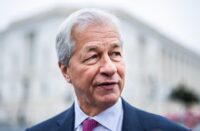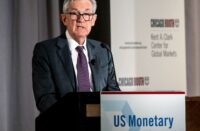Title: “The Killing of UnitedHealthcare CEO Sparks Security Overhaul in Corporate America”
The shocking murder of UnitedHealthcare’s CEO, Brian Thompson, while he was unescorted on his way to an investor event, has compelled businesses across America to reassess the potential risks involved in even the most mundane executive duties.
The incident, which occurred in the corporate hub of America, has sent tremors through the commercial sector, prompting companies to ask, “Are we safe?” Chuck Randolph, Ontic’s chief security officer, commented that the incident has shifted the concept of executive protection to boardroom discussions. This sentiment is shared by many in the industry.
Security threats against businesses have seen an upward trend, fuelled partly by the magnifying effect of social media and an increasingly divided political landscape. The shooting of Thompson, who was at the helm of the largest private health insurer in the country, is the most high-profile such incident in recent history.
In the aftermath, companies are increasingly concerned that their top brass might be at a higher risk of being targeted, particularly in the wake of upcoming public investor events in New York. The shooter remains at large, and the motive behind the act is still unknown. Some clues might lie in the words written on the shell casings found at the crime scene.
Security experts are now investigating if the shooter had any grievances against UnitedHealthcare that were aired in online forums, or if information about the investor event was sought online. In response, several healthcare companies have removed images of their executives from their websites, and health insurer Centene has opted to make an investor meeting virtual.
NYPD officials confirmed that Thompson did not have a security team with him at the time of the incident, despite known threats against him. None of UnitedHealthcare’s executives have personal security benefits, as per the company’s filings.
Scott Stewart of TorchStone Global asserts that the tragedy could have been prevented had appropriate security measures been in place. However, he also noted that many executives often turn down security arrangements due to the potential disruption to their personal lives.
In the wake of Thompson’s death, businesses across various sectors are stepping up security for their executives. Meanwhile, there is a growing realization in the corporate world that security is about more than just “guns, guards, and gates,” and risk intelligence and assessment are crucial components of corporate security.




